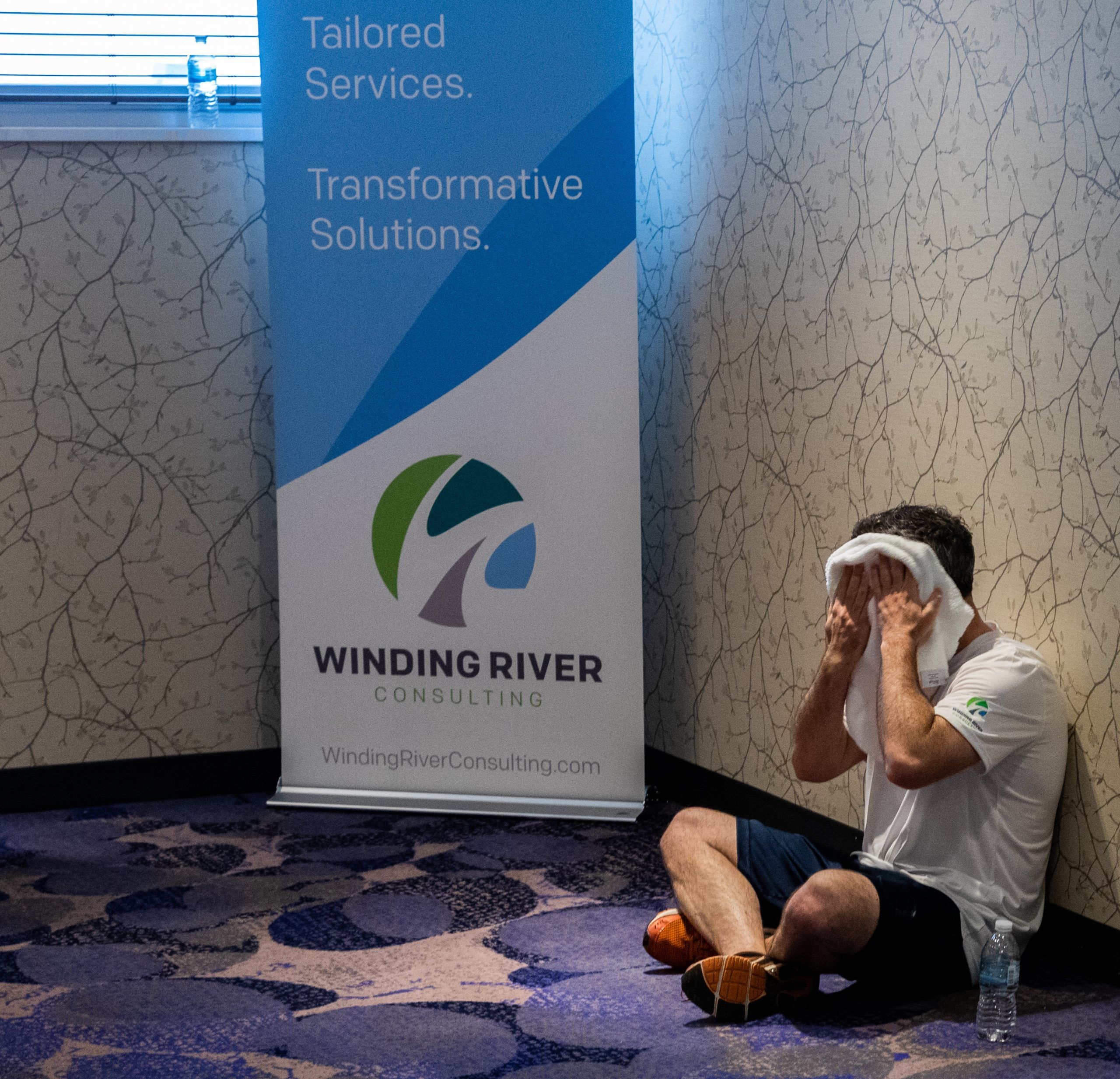4 min read
How far out is the future of your firm?
Firms need to make tough decisions today about how to move forward tomorrow Part one of two. Gary Boomer, Allan Koltin, and I have worked together...

Ilana is a marketing communications strategist who turns complexity into clarity. With a career spanning corporate communications, branding, PR, and executive messaging, Ilana fuses creative insight with analytical precision to build high-impact strategies. At Winding River Consulting, she crafts integrated marketing approaches that reflect the firm’s ethos of authenticity, excellence, and strategic execution. Her career includes national spokesperson roles, C-suite advisory, and more than a decade leading marketing for SS&G, one of the country’s fastest-growing accounting firms (now part of BDO). From campaign ideation to executive-level thought leadership, Ilana drives brand integrity, elevates firm positioning, and ensures every message connects meaningfully with its audience.
Table of Contents
Part two of two.
I shared my thoughts on the first two webinars in Accounting Today’s “The Pandemic and The Profession” (“The virtual workplace” as the new normal and “The crisis in industry talent”) I did with Gary Boomer, Allan Koltin, and Daniel Hood here.
We addressed 1) new opportunities for growth and 2) the 4 Cs – cash, compensation, collections, and capital in the final two webinars. Below is the summary of my big-picture thoughts on both.
When it comes to growth, this year won’t really matter. This is really going to be a year of sustaining business. Firms got significant PPP money essentially just to keep going. If they can get through this year fairly unscathed, they have an immense opportunity ahead of them.
What’s going to be the determining factor as to whether or not they flourish will be how they plan moving forward. While the Payment Protection Program (PPP) program is being spent to retain good people, the smart leadership is spending its time planning its firm’s rebuilding.
Those firms that used the PPP to sustain good talent will most likely be fine. History won’t look kindly upon companies that took the money and didn’t need it.
As they are building that plan, leaders should be asking which new service areas emerging are temporary? Are there service areas that we think are going to last? I think some old services may be elevating as we move forward. There are certain firms that might have strong areas of practice and they need to leverage the relationships that already exist within those practices. It’s low-hanging fruit and with the right cultivation, these niches can be sustained and then grown exponentially.
I have been a big proponent of firms moving to an advisory model for a long time. For example, we’re looking at a recessionary period and we don’t know how deep it will go or how long it will last. Turnaround management, insolvency, and bankruptcy will be solid practices, with considerable potential. Most firms don’t provide this type of service, but to me it’s a no-brainer. If you’re not doing it, maybe you should be partnering with a firm that does.
Another service area for consideration: wealth management, although not new, is something that makes a lot of sense. Many wealth management companies have let their clients down. Accounting firm-based wealth management practices are much more service oriented and have potential for mutually beneficial, long-term relationships.
I’ve been talking for more than three months about the marginalization of client service/client experience (CX) given tools like Zoom. I have honestly had a difficult time getting people to understand where the detriment is. So here is an analogy I’m using that I think really explains what this is about.
Take two universities: your local state college and an Ivy League university. Is there a difference in the service they provide? Are you kidding?! There’s a huge difference that can’t even begin to be measured. For the same experience — remote semesters, virtual classes — are you going to be paying $90,000 at Harvard or is $9,000 at Cleveland State more palpable? The Ivy League schools are trying to reopen because they simply can’t deliver the same experiential value over Zoom that they can in person.
Now take accounting. It’s being leveled by Zoom. You’re going to have to come up with ways to differentiate yourselves and make the experience stand apart. Are you worth the experiential value? Clients will be asking!
What does marketing and prospecting look like in the current environment? Firms aren’t pursuing growth because they don’t know how. Most firms have created their organizations through relationships. That’s how I built mine. How do you grow your practice in a pandemic when you’re not meeting people face-to-face?
Most firms haven’t made the adjustment and are living off fumes leftover from pre-pandemic business development opportunities that might only now be coming to fruition. The accounting profession needs to evolve the way other industries are — using technology to differentiate themselves. Items like websites, SEO, social media, webinars are the best ways to engage prospects virtually. Firms are going to have focus on their strengths and use technology to market.
There are winners and losers in your client base. Now is a really good time to right-size and decide where it’s best to invest moving forward. Take the time to assess the keepers and figure out how to help transition those that might be out of your practice scope, too needy, or too costly.
Want to stand out in the process? Identify smaller firms and/or sole practitioners you know and trust will take excellent care of the clients. Help these clients and colleagues to transition the work to help make it as seamless and painless as possible.
We’ve all been told, “Don’t waste a good recession.” What exactly does that mean?
One example is the opportunity that lies in geography or rather, the lack of it. Clients will not care where they are serviced from, as long as the expertise is exceptional and the service is stellar. A firm’s ability to acquire exceptional talent and marquis clients using technology and service opportunity will break down geographical barriers and these firms will enable them to soar. Firms that can figure out how to work virtually will have no geographic limitations in terms of talent and clients. Growth here is inevitable.
When this pandemic started in the middle of March, firm leaders were really concerned about cash flow. Those concerns haven’t been as significant as predicted because of the PPP relief. There’s not a firm I’m aware of that didn’t receive PPP funds which helped alleviate any cash flow concerns they had.
The firms that I’ve spoken to that have suffered the most are those that are focused on industries that have been negatively impacted by the pandemic – these are the clients that got you to where you are and you’ll need in another year or two, but can you count on them now? The slippery slope comes into play with how aggressive you want to be with those clients that may not be able pay you today. But they certainly need your help and have the potential to be those steadfast clients in the future.
Many firms have a lot of bad practices that they chose not to deal with because the economy was so good. Why push the envelope? Now is the time to confront and change that which is holding you back and keeping you down. This is a time to really look at your organization and make reasonable processes and make sure you enforce them.
1. Bad people. Firms have a lot of C and D players. Why?! They require too much time and attention which you could use to cultivate stars.
2. Bad clients. The $300 1040s you’ve been doing, you just can’t justify. So don’t. You are losing money.
3. Bad habits. Most firms have bad billing and collections habits. If you can’t figure out how to fix this, you are doomed.
Our profession will unfortunately go back to its old habits when it comes to partner accountability. The more firms are run like a corporation, the better the opportunity for more internal efficiency. Holding people accountable, even or especially partners, is going to be essential for survival first, and then growth. Establish a C-suite hierarchy model for leadership responsibility and you’re on your way.
The expectation for most partners compensation this year, in the short term, is to be where they were a year ago. There are three significant reasons I think this is unlikely:
1. the switch to virtual is having an impact on productivity
2. collections are more uncertain and more challenging
3. a recession will ensure the work just won’t be there
A huge consideration that could have a measurable impact pertains to retirements. COVID-19 has expanded the gap between Baby Boomers and Millennials, for Boomers to work in this environment its going to be more difficult for them. It makes a good case for partner retirement ages to start to contract. It is difficult but necessary.
A firm’s capital needs is a big question and I think if firms are looking at their future this is a huge issue. They have to make two investments:
1. The move to financial services model. This will require buying and/or growing companies, which will require financial infusion.
2. The transition to virtual. The biggest cost here will be with respect to training.
There’s a lot of money to be spent on these firms. If you couple that with moving into a recession for who knows how long, it makes it more difficult.
Looking beyond this year, firms will either be winners or losers depending on how they were able to pivot to grow in a virtual environment. They will have to have a strategy and tactics in place to assure a roadmap to success.
I am totally fixated on the impact of COVID-19 and the transition to this virtual new world. I think it’s the most significant change to the profession since the invention of bookkeeping. Most firms aren’t going to be able to figure it out. They need to find and ask for help. The opportunities here are unparalleled. Some firms will soar and for others, it will be the end.

4 min read
Firms need to make tough decisions today about how to move forward tomorrow Part one of two. Gary Boomer, Allan Koltin, and I have worked together...

1 min read
Gary S. Shamis has been named to Accounting Today’s annual list of “The top 100 most influential people in accounting.” This marks his return to the...

1 min read
Coveted industry leadership event responds to demand Winding River Consulting is pleased to announce dates for its 10th, 11th, and 12th Managing...